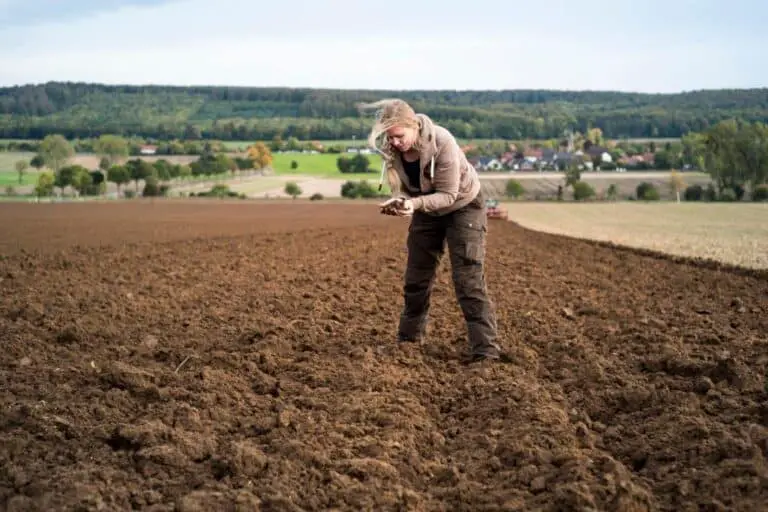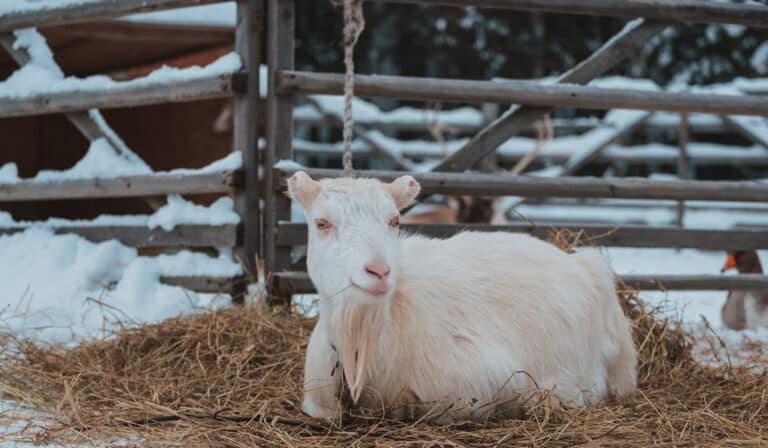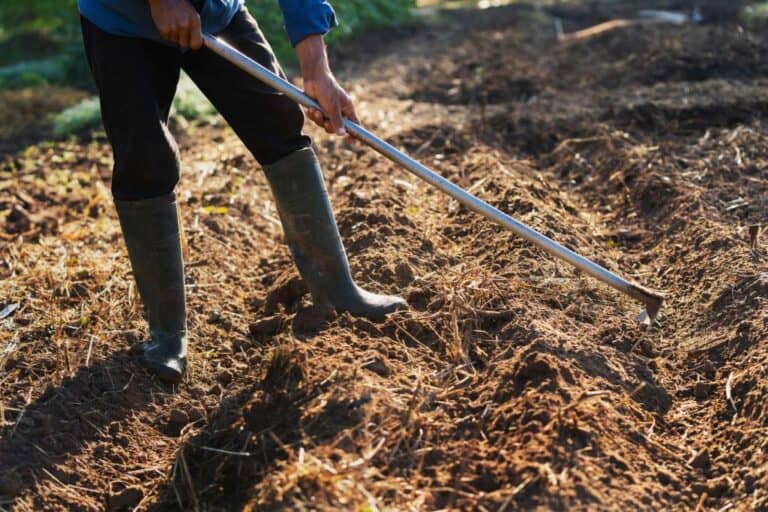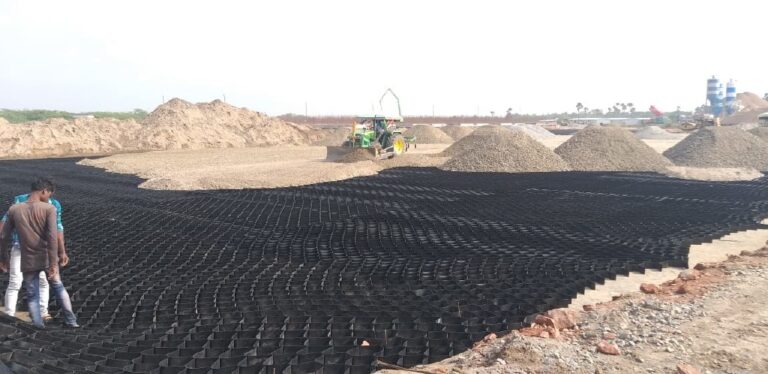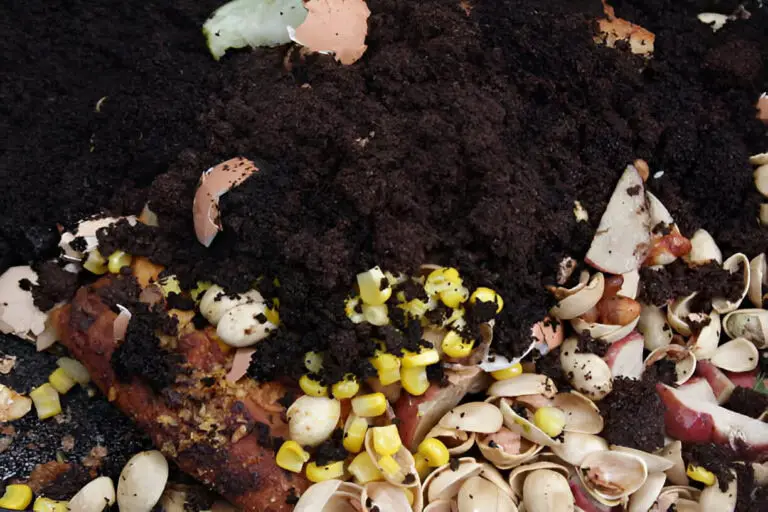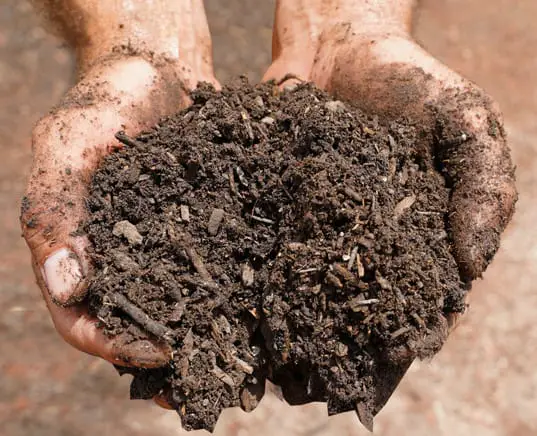Why Is Volcanic Soil So Fertile? Nature’s Agricultural Potential
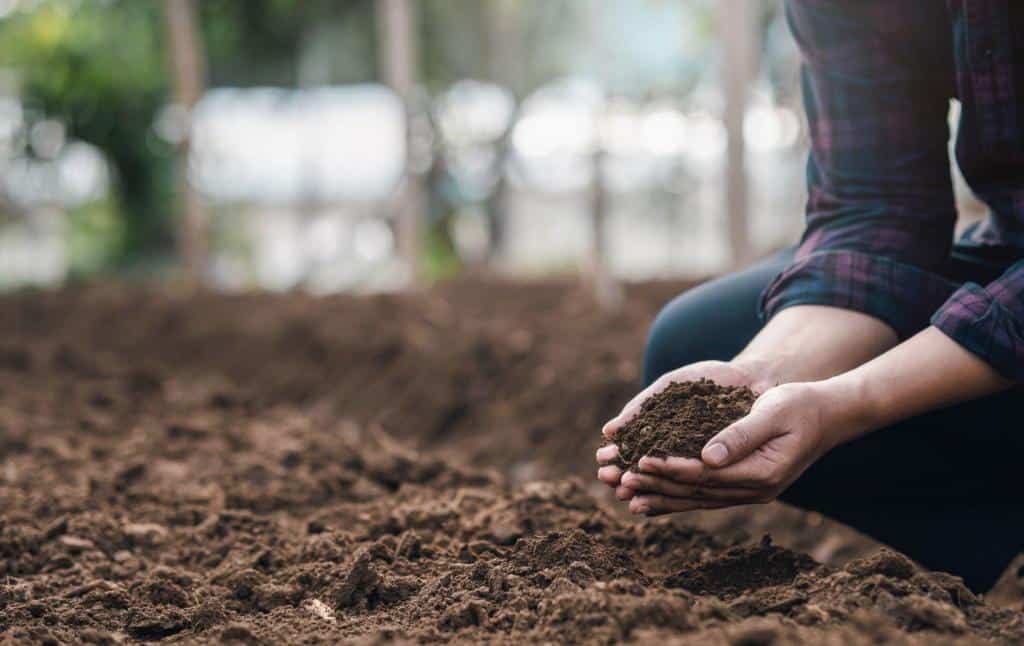
Welcome to a journey into the fascinating world of volcanic soil, where nature’s forces converge to create a veritable paradise for agriculture. Have you ever wondered why certain regions with volcanic soil yield abundant crops and sustain lush vegetation?
The answer lies in the remarkable fertility of this unique soil type, which has captured the attention of farmers and scientists for centuries.
Volcanic soil, also known as volcanic ash soil or Andisol, is a testament to the dynamic interplay between geology, chemistry, and biology. It emerges from volcanic eruptions as a fertile powerhouse that supports thriving agricultural systems.
In this article, we will explore the secrets behind the exceptional fertility of volcanic soil and unlock its agricultural potential. We’ll learn how volcanic soil supports plant growth, from the breakdown of volcanic ash and rocks to the role of organic matter and microorganisms.
We will delve into case studies of successful farming practices. In addition to that, we will compare volcanic soil to other soil types and discover conservation and management strategies for its long-term sustainability.
So, join us as we uncover the mysteries of volcanic soil and discover nature’s agricultural prowess in this captivating journey.
Formation of Volcanic Soil: Geological Processes
The creation of volcanic soil is a captivating tale that begins with the magnificent spectacle of volcanic eruptions. These awe-inspiring events are nature’s way of unleashing the raw power and elemental forces that shape our planet. From the depths of the earth, molten lava erupts, casting a fiery glow upon the world.
As the molten lava spews forth, it cascades down mountainsides or flows across the landscape, a molten river of heat and energy. But as it encounters the cooler air above, a magical transformation takes place. The lava begins to cool and solidify, transitioning from a blistering liquid to a solid rock.
This process of cooling and solidification is essential to the formation of volcanic soil. As the lava cools, it fractures and shatters, forming an intricate network of rocks and boulders.
Over time, the cooling process continues, and the rocks and ash undergo further transformations. The relentless forces of weathering and erosion come into play, breaking down the volcanic material. Rainfall seeps into the cracks and crevices, expanding them as it freezes and thaws. The wind carries away loose particles, sculpting the landscape. With each passing day, the rocks and ash crumble, becoming smaller and more fragmented.
As this process unfolds, the volcanic material transforms into fertile soil. The rocks break down into smaller pieces, mixing with the ash and organic matter that accumulate over time. The result is a rich and fertile medium that supports the growth of plants, offering a bounty of nutrients and minerals.
Chemical and Physical Composition of Volcanic Soil
One of the key factors contributing to the fertility of volcanic soil lies in its unique chemical composition. Volcanic activity releases a wide range of minerals from the Earth’s crust, which become embedded in volcanic ash and rocks.
When these materials break down and mix with the soil, they release a plethora of nutrients essential for plant growth. The mineral composition of volcanic soil can vary depending on the type of volcano and the surrounding geological context.
The volcanic activity also plays a crucial role in the release of nutrients. Eruptions and cooling convert minerals into plant-available forms. This abundance of nutrients provides a fertile environment for crops to flourish.
Moreover, the pH level and cation exchange capacity (CEC) of volcanic soil significantly contribute to its fertility. Volcanic soil’s slightly acidic to neutral pH range promotes plant growth and nutrient availability. The CEC, refers to the soil’s capacity to retain and exchange nutrients with plant roots, further enhancing its fertility.
In addition to its chemical composition, the physical properties of volcanic soil also contribute to its exceptional fertility. Volcanic soil typically possesses a loose and porous texture, thanks to its origins in ash and fragmented rocks.
This unique texture allows for excellent water retention capacity while promoting adequate drainage. The interconnected air spaces within the soil provide oxygen to plant roots, facilitating healthy growth.
Why Is Volcanic Soil So Fertile?
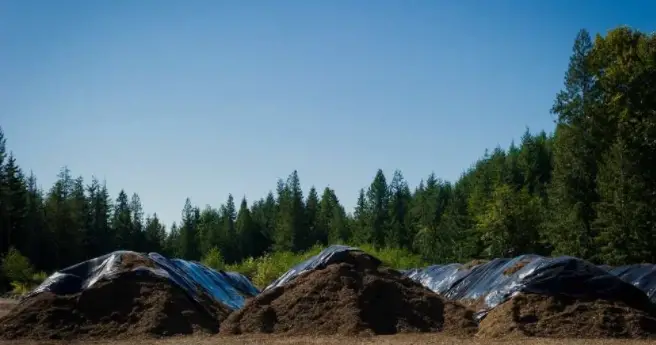
Volcanic soil, captivates the imagination with its ability to sustain thriving ecosystems and bountiful harvests. But what is it about this unique type of soil that makes it so incredibly fertile? Let us delve into the secrets of volcanic soil and uncover eight natural wonders that contribute to its fertility.
1. Rich in Nutrients
Volcanic soil is rich in essential nutrients, making it an ideal medium for plant growth. During volcanic eruptions, molten lava and ash are released from the earth’s core and spread across the surrounding areas. This soil is packed with minerals such as potassium, phosphorus, calcium, magnesium, and iron, which are vital for plant nutrition.
Nutrients like potassium help enhance root development and flower production, while phosphorus promotes healthy root systems and plant growth. Calcium aids in the formation of strong cell walls, and magnesium is essential for chlorophyll production. Iron facilitates photosynthesis and the formation of enzymes.
The combination of these nutrients provides plants with a solid foundation for optimal growth and productivity. The presence of these nutrients in volcanic soil creates a fertile environment that supports robust plant growth.
2. Basalt Composition
Basalt composition plays a significant role in the exceptional fertility of volcanic soils. Geologists and soil scientists have studied volcanic soils and found that they are mostly basalt. Basalt is an igneous rock that forms from the cooling and solidification of lava.
One key characteristic of basalt is its small crystals, known as microlites. Its structure contributes to its unique properties. Due to their small size, these crystals have a large surface area relative to their volume. As a result, they are more easily weathered and broken down over time.
3. Excellent Drainage
Volcanic soil has a unique property that sets it apart from other types of soil: excellent drainage. The porous nature of volcanic soil allows water to percolate through it quickly. This prevents waterlogging and provides adequate oxygen to plant roots. This is crucial because waterlogged soil can suffocate roots and lead to root rot, adversely affecting plant health.
The porous structure of volcanic soil also helps retain moisture during dry periods. The soil particles act like sponges, absorbing water and holding it for longer periods. It helps plants to have access to water even in arid conditions. This ability to retain moisture while maintaining proper drainage is beneficial for plants, especially in regions with irregular rainfall patterns.
4. Enhanced Soil Aeration
Apart from drainage, volcanic soil offers another advantage: enhanced soil aeration. The porous nature of volcanic soil not only facilitates water movement but also allows air to circulate within the soil profile.
This is crucial for plant roots, as they require oxygen to carry out respiration. Well-aerated soil promotes root development and helps plants absorb nutrients efficiently.
Volcanic soil’s improved soil aeration prevents the accumulation of harmful gases like carbon dioxide and methane, which can harm plants. The circulation of fresh air through the soil ensures that plants have access to the oxygen they need for their metabolic processes, leading to healthier and more vigorous growth.
5. pH Balance
Another noteworthy characteristic of volcanic soil is its pH balance. The pH level of the soil plays a significant role in nutrient availability to plants. Most plants prefer a slightly acidic to neutral pH range for optimal growth. Volcanic soil tends to have a pH level in this desired range, making it suitable for a wide variety of crops and plants.
The natural acidity of volcanic soil can be attributed to the presence of volcanic ash, which contains minerals like sulfur and iron. These minerals, upon reacting with water and air, release acids that gradually lower the soil pH.
This acidic environment enhances the availability of certain essential nutrients, such as iron, zinc, and manganese. They are crucial for plant development. Additionally, the balanced pH of volcanic soil helps prevent nutrient deficiencies and toxicities, ensuring plants can thrive without hindrance.
6. High Organic Matter Content
Volcanic soil also exhibits a high organic matter content, which further contributes to its fertility. As volcanic eruptions occur, the ash and lava settle on the surrounding landscape. It eventually decomposes and mixes with organic materials such as plant debris and animal remains. This organic matter enriches the soil with nutrients and enhances its ability to retain moisture.
The presence of organic matter in volcanic soil promotes the growth of beneficial microorganisms, earthworms, and other soil-dwelling organisms. These organisms break down organic matter into humus, a dark, nutrient-rich substance that improves soil structure and fertility.
Humus helps the soil retain moisture, increases its cation exchange capacity (the soil’s ability to hold and exchange nutrients), and enhances its overall fertility. Volcanic soil’s organic matter fosters a healthy ecosystem that maintains soil fertility and plant growth.
7. Resistance to Erosion
Volcanic soil exhibits remarkable resistance to erosion, making it an excellent choice for agricultural and gardening purposes. The fine-grained nature of volcanic ash particles and their ability to interlock create a stable soil structure that resists erosion by wind and water. This stability is crucial, particularly in areas with high rainfall or strong winds, where soil erosion can be a significant challenge.
Volcanic soil’s ability to resist erosion helps keep the fertile topsoil intact by preventing the loss of important nutrients. This ensures that the soil remains fertile and productive over time, supporting sustainable agriculture and reducing the need for excessive soil conservation measures.
8. Natural Pest and Disease Resistance
Volcanic soil has been found to possess natural pest and disease resistance properties, providing an additional advantage to farmers and gardeners. The mineral composition of volcanic soil, particularly the presence of sulfur, can act as a natural deterrent for certain pests and diseases. Sulfur is known for its fungicidal and insecticidal properties, making volcanic soil less susceptible to fungal infections, nematodes, and some insect pests.
The natural resistance of volcanic soil to pests and diseases reduces the reliance on synthetic pesticides and promotes environmentally friendly farming practices. This not only benefits the ecosystem but also helps maintain the integrity of the soil and the long-term health of the crops.
Comparing Volcanic Soil to Other Soil Types
To truly appreciate the fertility of volcanic soil, it is helpful to compare it with other soil types. While there are various soil classifications, volcanic soil stands out for its unique properties. Let’s explore a comparison between volcanic soil and other commonly found fertile soil types, such as loam and black soil:
| Soil Type | Characteristics |
| Volcanic Soil | Rich in minerals, high fertility, excellent drainage |
| Loam | Well-balanced texture, good water retention, moderate fertility |
| Black Soil | High organic matter, moisture retention, excellent fertility |
It’s important to note that each soil type has its advantages and disadvantages. Volcanic soil’s exceptional drainage, mineral composition, and high fertility make it ideal for certain crops and agricultural practices. However, factors such as water retention and organic matter content may differ among soil types, influencing their suitability for specific crops and farming techniques.
Understanding these distinctions allows farmers and researchers to make informed decisions when selecting the most appropriate soil type for their agricultural endeavors.
Can Volcanic Soil Be Used for Gardening?
Volcanic soil, with its remarkable fertility, is indeed an excellent choice for gardening enthusiasts seeking to cultivate vibrant and thriving plants. The unique properties of volcanic soil make it a highly beneficial medium for various gardening applications.
When it comes to gardening, soil quality is of utmost importance, and volcanic soil offers a multitude of advantages. One of the key benefits is its rich nutrient content.
Volcanic soil is packed with essential minerals such as potassium, phosphorus, calcium, magnesium, and iron, which provide the necessary nourishment for plants to flourish. These nutrients act as building blocks for robust root systems, healthy foliage, and bountiful blooms.
Moreover, volcanic soil’s excellent drainage capabilities make it well-suited for gardening. The porous nature of this soil allows excess water to swiftly percolate through, preventing waterlogging and ensuring that plant roots receive the optimal balance of moisture and oxygen. This is particularly advantageous for gardeners, as it helps prevent root rot and other moisture-related issues that can impede plant growth.
Additionally, the improved soil aeration that volcanic soil offers further encourages fruitful gardening endeavors. The porous structure of the soil allows for the circulation of air, ensuring that plant roots have access to the oxygen they need for respiration.
Adequate oxygen levels in the root zone are vital for nutrient uptake and overall plant health. With volcanic soil, gardeners can cultivate plants with strong, vibrant root systems, setting the stage for robust growth and flourishing foliage.
The pH balance of volcanic soil is also favorable for gardening purposes. Most plants thrive in slightly acidic to neutral pH ranges, and volcanic soil typically falls within this desired spectrum. With volcanic soil, gardeners can provide their plants with a nurturing environment that supports their growth and vitality.
Volcanic soil’s resistance to erosion makes it a reliable choice for gardening. The stable soil structure of volcanic soil helps preserve valuable topsoil, preventing nutrient loss due to runoff or wind erosion. This resilience to erosion ensures that the fertile characteristics of volcanic soil remain intact, providing a sustainable and long-lasting foundation for thriving gardens.
Whether you’re nurturing vibrant flowers, cultivating luscious vegetables, or tending to fruit-bearing trees, volcanic soil provides an ideal growing medium that supports healthy plant growth and abundant yields.
Conclusion
Volcanic soil’s exceptional fertility arises from a combination of factors, including its organic content, microorganisms, and unique geological origins. The success of agricultural systems in volcanic soil regions underscores their significant potential for sustainable food production.
Farmers and researchers can make informed decisions about crop selection, farming practices, and soil conservation by understanding volcanic soil’s chemical and physical properties and environmental impacts.
We can grow thriving agricultural systems while preserving the long-term fertility and ecological integrity of volcanic soil by using its natural advantages and good management. With careful stewardship, volcanic soil will continue to play a vital role in meeting the world’s growing food demands while supporting sustainable and environmentally conscious agricultural practices.
FAQs
What are the best crops to grow in volcanic soil?
Volcanic soil provides an excellent growing medium for a wide range of crops. Some of the best crops to grow in volcanic soil include coffee, cocoa, citrus fruits, tomatoes, potatoes, corn, beans, and various leafy greens. These crops benefit from the mineral-rich composition, optimal pH levels, and well-drained nature of volcanic soil, allowing them to thrive and produce abundant yields.
Are there any risks associated with farming on volcanic soil?
While volcanic soil offers remarkable fertility, there are certain risks associated with farming on such terrain. One potential risk is volcanic activity, as eruptions can destroy crops and disrupt farming operations. Additionally, erosion can be a concern due to the loose texture of volcanic soil. However, proper land management practices, such as terracing and erosion control measures, can help mitigate these risks and ensure sustainable farming on volcanic soil.
Does volcanic soil require additional fertilization for optimal crop growth?
In most cases, volcanic soil is naturally rich in minerals and nutrients, reducing the need for additional fertilization. However, the specific nutrient requirements of crops should be considered. Some crops may benefit from supplemental fertilization to address specific nutrient deficiencies. Soil testing can help determine if any amendments or fertilizers are necessary.
Is volcanic soil suitable for all types of plants?
Volcanic soil is generally suitable for a wide range of plants, thanks to its fertile nature and balanced mineral composition. However, some plant species have specific preferences or requirements regarding soil conditions. For example, acid-loving plants like blueberries and rhododendrons thrive in slightly acidic volcanic soil. On the other hand, plants that prefer alkaline conditions may not fare as well. It’s essential to consider the specific needs of plants and match them to the characteristics of volcanic soil to ensure optimal growth and health.
Can volcanic soil be used for organic farming?
Yes, volcanic soil can be an excellent choice for organic farming. Its rich mineral content and organic matter support the growth of crops without the need for synthetic fertilizers or pesticides. The porous structure of volcanic soil promotes good drainage, reducing the risk of waterlogging and root diseases. It is important to ensure that the volcanic soil used for organic farming has not been contaminated by volcanic gases or other pollutants. Regular soil testing and adherence to organic farming practices will help maintain the integrity of volcanic soil in organic agriculture.
How does volcanic soil compare to other soil types in terms of fertility?
Volcanic soil is renowned for its exceptional fertility and stands among the most fertile soil types. It is highly fertile due to its rich mineral composition, good water retention capacity, and favorable pH levels. Compared to other soil types like sandy or clay soils, volcanic soil generally has superior nutrient-holding capacity and better drainage. However, each soil type has its advantages and disadvantages depending on the specific crop and environmental conditions.
Can volcanic soil be depleted of nutrients over time?
While volcanic soil is naturally nutrient-rich, intensive farming practices can deplete its nutrient levels over time. Continuous cultivation without proper nutrient management or crop rotation can lead to nutrient imbalances and decreased fertility. To maintain the long-term productivity of volcanic soil, it’s essential to practice sustainable farming techniques such as organic matter incorporation, crop diversification, and judicious use of fertilizers based on soil testing. Implementing soil conservation practices and adopting sustainable land management approaches will help preserve and replenish the nutrients in volcanic soil for future generations.

